


The Supreme Court held a rare oral hearing without asking the Finnish politician any questions. “This is a battle that must be fought to the end”, said Räsänen after the hearing.

Finnish Christian politician, Päivi Räsänen, is about to face her final trial for her writings on Biblical marriage. “I pray the hearing could open up opportunities to present the Gospel”, she says.

The proposal to create lists of healthcare objectors reopens the debate in Spain on the boundaries between rights, confidentiality, and professional freedom. An article by Susana Cossio.
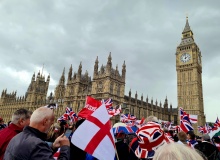
The Evangelical Alliance is among the signatories of a letter condemning the use of the cross as a symbol of exclusion of foreigners. They consider it to be a ‘corruption’ of the gospel message.

Here are my thoughts about some of the things people are saying about the murder of Charlie Kirk.

Pentecosal pastor Nikolay Romanyuk was accused of opposing war against Ukraine. “I do not retract my sermon”, he said in court.
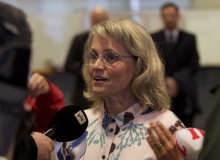
The Supreme Court has summoned Päivi Räsänen to appear on 30 October. In a six-year-long case, two courts had already ruled that the former Finnish interior minister's views on the Bible cannot be considered hate speech against homosexuals.
.jpg)
The court in France convicted the man, who suffers from schizophrenia, for damage motivated by ‘religious reasons’. Other European countries have been trying for years to find solutions that respect all freedoms.
.jpg)
We spoke in Berlin with Päivi Räsänen, the Finnish parliamentarian awaiting the outcome of a trial for publicly expressing her Christian beliefs. “I see a real threat to freedom. That’s why I always encourage Christians to make use of the rights we still have: freedom of speech, freedom of religion”.
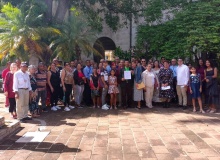
The Alliance of Christians in Cuba reports 996 repressive acts against religious leaders in 2024, in a country where 89% of families live in extreme poverty.
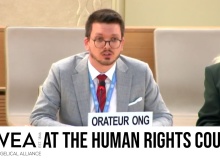
In its address to the UN Human Rights Council, the World Evangelical Alliance proposes better training on religious freedom for state officials and politicians.
.jpg)
Salwan Momika was at the centre of an international controversy in 2023 with Islamic countries calling for limits on free speech in Sweden. “Islamists often play according to other rules”, laments Olof Edsinger of the Evangelical Alliance.
.jpg)
We must call on Europe to make a critical assessment of the results of its policy of renouncing the biblical worldview. We must offer hope for revitalisation.
.jpg)
Users of Facebook, Instagram should now be even more careful when using social media. Meta no longer wants to rely on fact-checkers in future. A perspective from Europe.

Meta removes fact-checkers and replaces them with so-called ‘community notes’. “We are going to restore freedom of speech”, he says.

The Observatory on Intolerance and Discrimination against Christians in Europe reports at least 2,444 anti-Christian hate crimes in 35 European countries in 2023.
.jpg)
A concise joint Christian statement signed by Pentecostals, Baptists, evangelical Lutherans, as well as the Roman Catholic bishops, denounces the “activism” and “pressures” of the government.
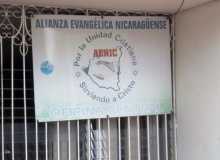
In a letter delivered to the Nicaraguan embassy in Spain, the Spanish Evangelical Alliance expresses its concern about the “harassment and demolition of freedoms” in the Central American country.
The government has already eliminated over 5,500 organisations since the end of 2018, 70% of the total number that existed in Nicaragua by 2017.
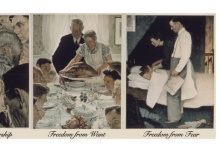
The instinct to withdraw into isolationism and nationalism is understandable, yet it plays into the hands of authoritarian, anti-democratic forces.

Why do people assume that the freedom of speech and of religion will persist when those asserting their power are committed to a different morality?
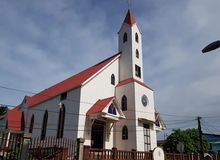
Daniel Ortega’s objective is to cancel Nicaragua’s civil society including churches that refuse to be subservient to the regime.
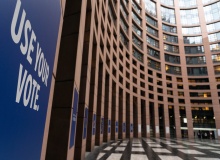
May our votes in the upcoming elections go to those whose worldview promotes long-term sustainability.
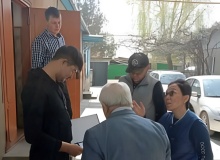
In just 2 moths, police raided 4 worship services and issued 7 fines for leading and participating in “illegal missionary activity”.

The world’s most populated country is in the midst of a key general election. “People are afraid that there will be no more elections afterwards”, says an evangelical.

Las opiniones vertidas por nuestros colaboradores se realizan a nivel personal, pudiendo coincidir o no con la postura de la dirección de Protestante Digital.